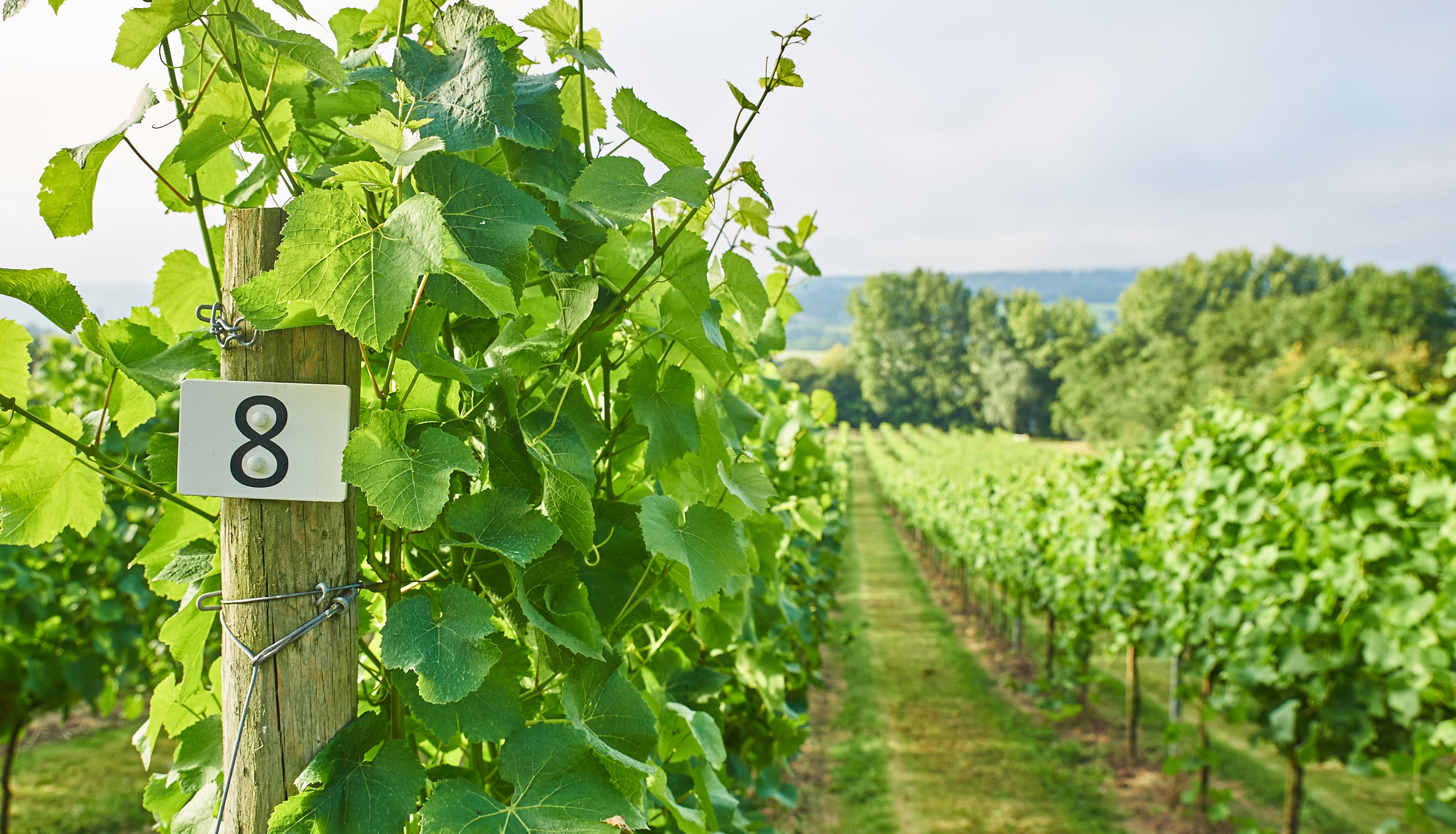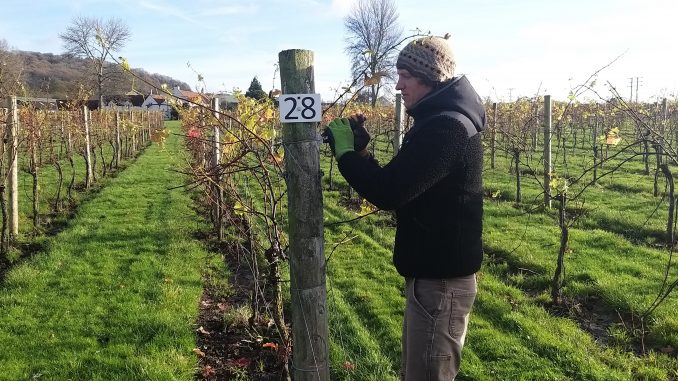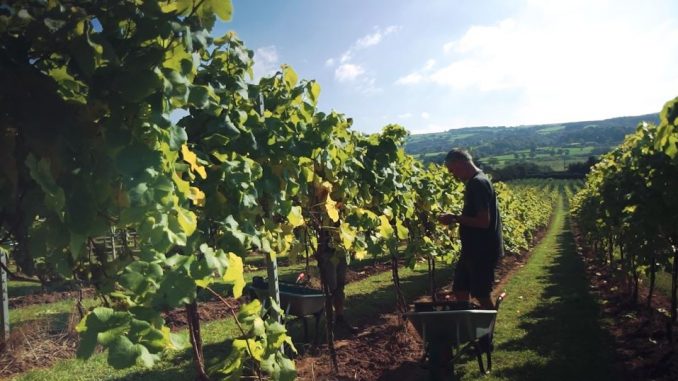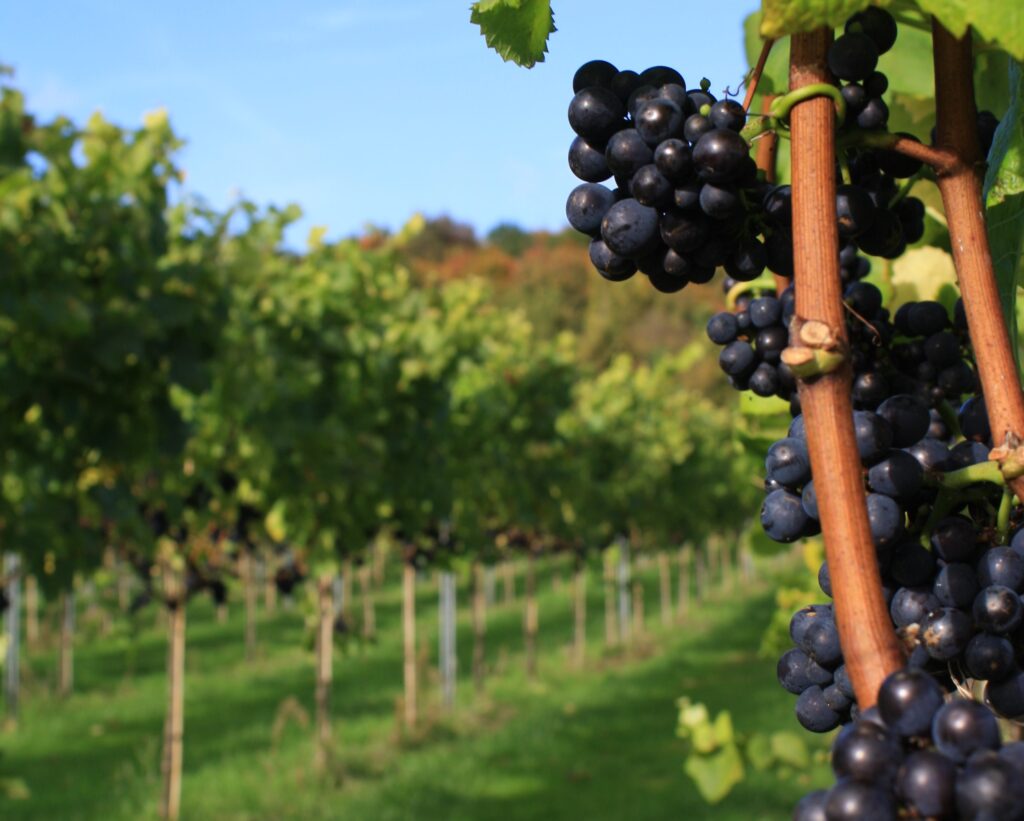Bloom and Prosper: The Case of Sustainable Wine in the UK
Despite the UK’s high consumption of the substance, local conditions are not suitable for wine production: vineyards in England and Wales account for just 1% of the domestic market. Rapid growth in the last decade has now brought the number of official vineyards in England to 450, producing 15.6 million bottles a year.
Vineyards are usually located in southern regions with a warmer, drier climate resulting in higher sugar levels in the grapes; Suitable for white and sparkling varieties that prefer the chalky limestone of the east coast counties of England such as Kent and Sussex – with similar soil and climate to the Champagne region of France.
The rise in popularity of local wine is largely attributed to a changing climate, including a recent spate of hot summers, and to the higher yields farmers are seeing compared to standard crops.
But the most interesting explanation is the growing interest in the local food movement. Consumers are actively choosing to cut air miles and support local products, in numbers sufficient to make local wine production viable.
What difference does this make to the state and sustainability of Britain's green and pleasant land?
According to the headlines, the organic wine industry is booming in the UK, with sales up 47% this year, but this methodology represents only 3% of English vineyards, and only 1% of them are biodynamic.
This may not be all bad news. The heavy chemical use of conventional winemaking is known to negatively impact soil health; organic methods have become controversial because they rely on similarly heavy use of additives—particularly copper, which stays in the ground, reducing soil fertility and harming wildlife, groundwater, and farmers.
In the face of these challenges, many growers are adopting a more realistic philosophy that rather than strictly adhering to specific labels, production should aim for environmental sustainability while working to achieve this in the best possible way for the local landscape.

Ecological agriculture the Aldwick way
Located in the heart of North Somerset, Aldwick Farm comprises a sheep farm, events venue and 12 acres of vineyards. The farm was previously a dairy farm, then an arable farm and then an intensive pig farm until 2012. This end use had a significant impact on the land, with feed additives killing off earthworms and microbes. However, the removal of the pigs and the implementation of sustainable land management has greatly improved the soil and worm numbers are now back on the rise.
Ecological farming practices throughout the farm include rotational grazing, fermented forage production, closed operations and diversification; and vineyard management focuses on an integrated approach to sustainability with soil health as the foundation and a long-term view towards producing environmentally responsible wines of the highest caliber.
Dave Morris joined Aldwick as Vineyard Manager in January 2020 after years of practice in biodynamic wine production. He realizes that the estate's approach is more complex but feels the spirit matches his own, as land management should reflect the needs of the landscape in the context of local geography and climate.
In Somerset, this means using fungicides and herbicides but with an emphasis on long-term reduction and absolute reduction – predicting that a spray program within the limits of organic certification could be implemented within the next few years. This is based on improved soil structure that supports vine health to the point of reduced susceptibility to disease. Healthy vines and reduced spray systems are a win-win for the land and the estate: indirect effects include improved soil microbiology, reduced compaction, reduced diesel use and lower farm costs.

Soil first
With these benefits in mind, a focus on soil improvements is absolutely essential: “Soil health has always been the cornerstone of the approach here at Aldwick and remains of paramount importance,” says Dave.
This begins with a unique under-vine composting system. The latter recipe is high in carbon to offset the site’s high natural nitrogen content. It consists of mixed waste from neighboring farms to supplement the property’s own straw and hay waste from the stables, grape residue from the winery, wood chips from the tree surgeon’s yard, grass clippings and shredded office paper. Dave is proud of this closed-loop waste reuse “as intended in the most ambitious sustainable systems.”
The compost application aims to improve the heavy clay topsoil of vineyards, increasing organic matter, organisms, water storage and fertility – so as to provide all the nutritional needs of the vines without the use of petrochemical-derived foliar feeds.
Dave has already seen the benefits: “There has been a significant improvement in the soil's ability to hold water – a reduction in waterlogging and harsh conditions in the dry summer months. By building vineyards from the soil up, we see occasional evidence year after year of greater plant diversity.” and wildlife throughout the site.
The better the soil, the easier it is to weed and the larger the weeding window – which means fewer passes with a mechanical weeder and less spraying without decreased effectiveness.

Topical spraying and sustainability
Dave likens this approach to “lutte raisonnée” systems in France, which focus on removing weeds under vines to reduce disease pressure.
In Somerset, with abundant rainfall and nitrogen, weeds appear constantly during the growing season meaning mechanical weeding is necessary; Every effort is made to protect the soil structure by limiting machine use, so spot spraying enhances the weeding programme.
Purists may disagree, but Dave says: “Spot spraying allows us to reduce tractor use, diesel consumption and a lot of additional mechanical weeding without having to do a full herbicide application. Not relying on one method gives us the ability to adapt in Timing and application of either to optimal conditions.
Dave says this approach is key to achieving many of the property's goals, including long-term sustainability. Air and sunlight flow through the canopy – aided by natural plants and mineral sprinklers. This always means smaller harvests and higher prices.
Aldwick uses the same high quality cultural techniques, but supported by simple applications of synthetic fungicides that are well timed, carefully planned and adapted to conditions and disease pressure.
Chemical intervention is further limited by the use of home-made compost and willow tea: “This allows us to achieve another really important thread of sustainability – producing very good yields of high-quality grapes at a lower cost than with a biodynamic or organic system, which is reflected in the final price of the wine.” ”

new beginning
Dave is optimistic about Aldwick's future, and cautiously hopeful for the local industry in light of the new environmentally focused agricultural policy.
“It’s hard to say until the details are filled in between now and 2024, but the focus on soil seems to show a new way of thinking on the part of government,” he notes. “We hope that legislation will be put in place to reward those who invest more in the land, improving soil and environmental health while maintaining productivity. Our approach fits well with those ideals.”
He points out that relevant financial incentives can have beneficial implications such as access to better machinery, and reduced land footprint and emissions. For the industry as a whole: “I hope and believe that many producers will start or have already started to farm their land in a more ecological way that better reflects the specifics of their sites and conditions. Dynamic government policy such as the ELM can only accelerate this.
A newly created national plan, the Great Britain Sustainable Wine Scheme, aims to reduce the sector's environmental impact and support its contribution to biodiversity conservation. Organic already accounts for 40% of local wine production.
The UK wine industry’s youth can do it a favour, says Dave: “The lack of history makes it easier to start on a better environmental path than many other wine-growing regions. I hope viticulture continues to grow as a responsible, environmentally sound form of farming.
There may also be opportunities on marginal land that is not suitable for food production: “I hope there will be a greater move towards using these sites for wine production – as is the norm in countries that traditionally grow grapes. If government policy can stimulate this, it could be a win-win for everyone.” “.


